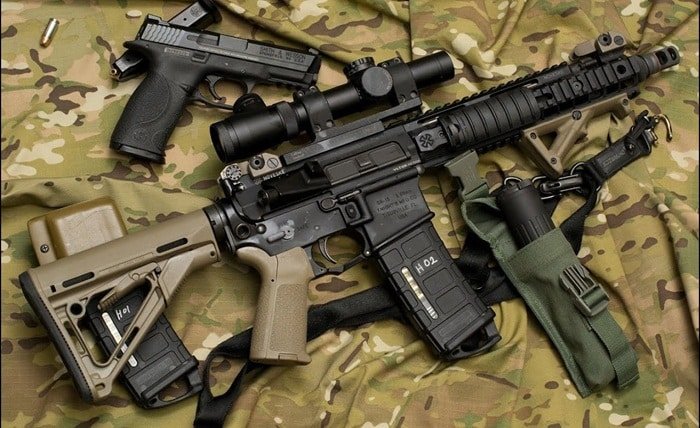Expert Tips for Customizing Your Delaware Compliant AR15

Different countries usually have different gun laws in place. Therefore, one cannot simply order custom parts or complete weapons for their custom-built AR15 rifle. However, there are options available for most people and most regulations when it comes to AR15 compliance. In particular, for a user wishing to make their own AR-15 from scratch, including hand guards, stocks, gas blocks, and triggers, these fears might sound familiar.
Understanding Delaware’s AR15 Regulations
Regulations in Delaware concerning firearms are fairly detailed, especially when it comes to AR15. These are mainly, but not limited to, magazine capacity, overall design of the rifle, and other buying factors. Before you do any sort of customizing or buying of additional parts, it is important to be thoroughly acquainted with the specific laws of the state. This ensures compliance with Delaware requirements while steering clear of any potentially tricky legal issues. Custom rifling pays off in the long run as it allows you to avoid the hefty bill of an entirely new AR15.
The law sets several sorts of restrictions on the magazine and on some other features of the rifle that could fall within the definition of a different type of rifle under Delaware law. The above-described restrictions in combination with the cycle of creation of the rifle result in the modification cycle.
Essential Components for Compliance
Creating a Delaware compliant AR15 begins with selecting appropriate components. The lower receiver—considered the firearm itself under federal regulations—deserves particular attention. Choosing a lower receiver that accommodates compliance modifications simplifies the customization process considerably.
Barrel length represents another critical factor in maintaining compliance. Delaware regulations specify minimum barrel requirements that differ from some neighboring states. Selecting appropriate barrel options not only ensures your Delaware compliant AR15 meets legal standards but can enhance accuracy and performance when chosen thoughtfully.
Muzzle devices require careful consideration as well. Certain types may affect your rifle’s classification under state law. Fortunately, numerous compliant options exist that still offer effective muzzle control and reduced recoil without compromising legal status.
Grip and Stock Modifications
The Delaware-compliant design of AR15 surely provides gun control and ease during shooting. For instance, the compliant grip designs accomplish the LED requirement and functional ergonomics. Various producers design specifically AR-compatible grips without sacrificing satisfactory handling.
Stock availability presents the same range of choice. Fixed stocks generally simplify firearms compliance procedures, but alternatives that comply with certain design prerequisites are still out there. These deciding factors also concern the rifle’s legality but also the fit to your particular body as well as your style of firing the gun.
Function and Performance Enhancements
Compliance doesn’t necessitate sacrificing performance. Trigger assemblies, for instance, can dramatically improve the shooting experience while maintaining legal status. Quality triggers reduce pull weight and improve break consistency, enhancing accuracy without regulatory concerns.
Optics and sighting systems represent another area where performance upgrades face few regulatory restrictions. Whether preferring traditional iron sights, red dot optics, or magnified scopes, these additions typically don’t affect your Delaware compliant AR15 status while significantly enhancing usability.
Internal component upgrades like enhanced bolt carrier groups and buffer systems can improve reliability and shooting characteristics. These modifications often fly under the regulatory radar while delivering noticeable performance benefits.
Working with Qualified Professionals
Engaging with Proficient Specialists When crafting a Delaware complaint AR15, one requires a specialist’s knowledge, for which the services of a gunsmith who is familiar with the state regulations are required, and are crucial during the process of customization. Such professionals are able to highlight the parts and items that will be best suited to meet your objective while at the same time complying with the applicable regulations.
Custom builders offer another avenue for creating compliant rifles tailored to individual preferences. Their expertise navigates the regulatory landscape while delivering personalized firearms that meet both legal requirements and performance expectations.
Documentation and Staying Current
Regulations evolve, making ongoing awareness essential for firearm owners. Maintaining documentation of your rifle’s configuration provides important reference information should questions arise. Similarly, joining local shooting organizations helps you stay informed about regulatory updates that might affect your Delaware compliant AR15.
Conclusion
Building a Delaware-compliant AR15 means being both compliant with the laws and indulging in personal taste. The self-gratification of building a firearm that satisfies all pertinent legal requirements while serving a specific purpose significantly improves one’s ownership experience. It is possible to build up a custom rifle suitable to the performance expectations remaining in line with the law by considering regulations, looking for appropriate parts and peripherals, and employing skilled staff.




